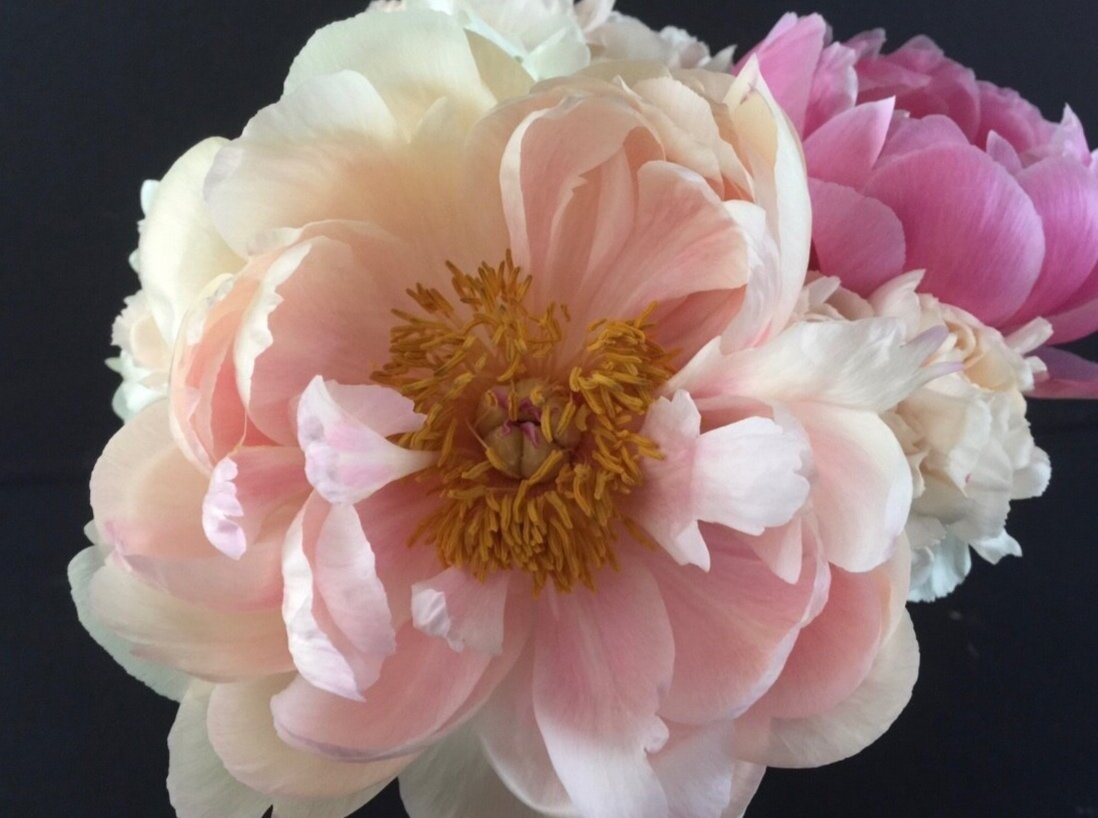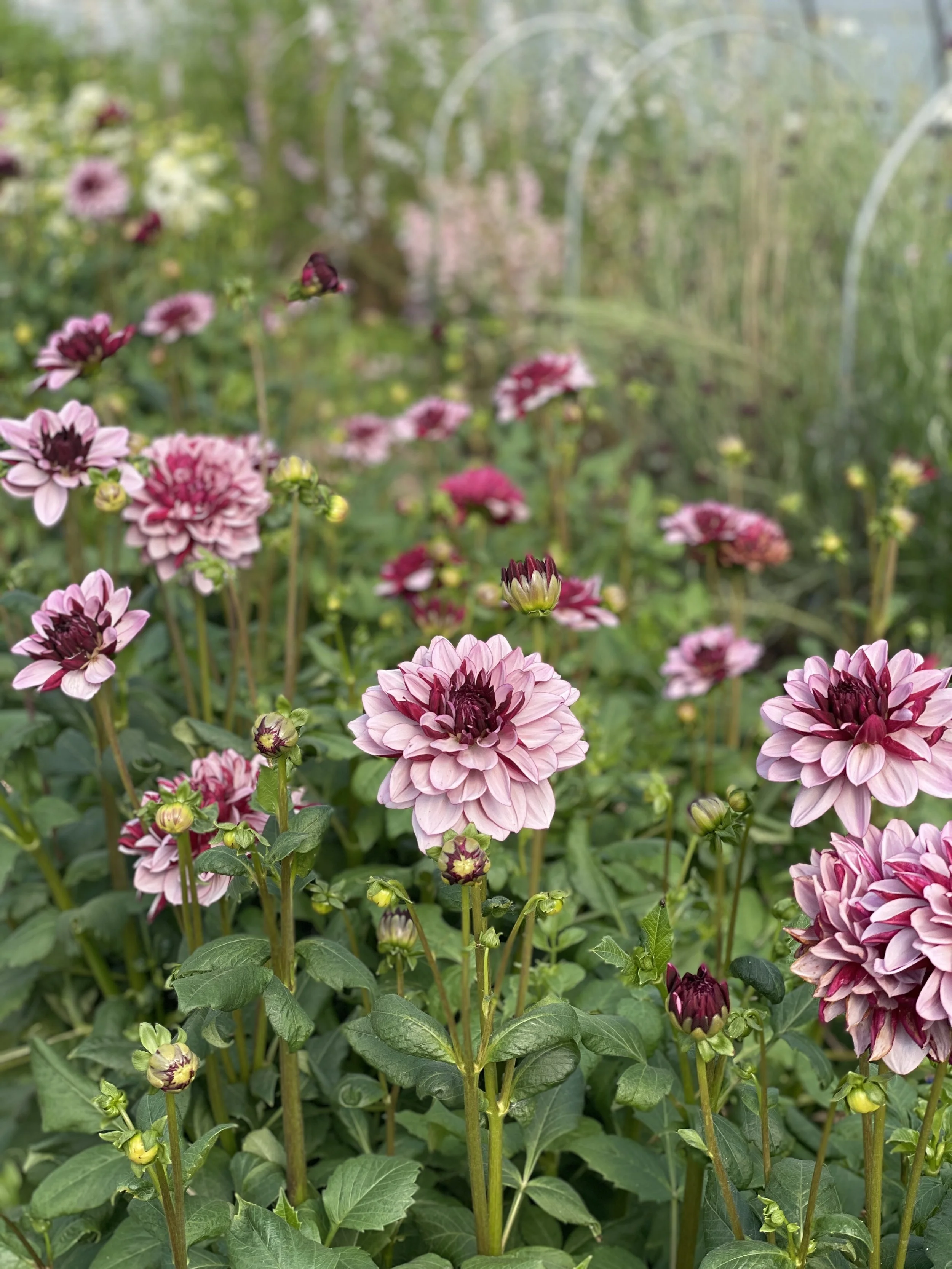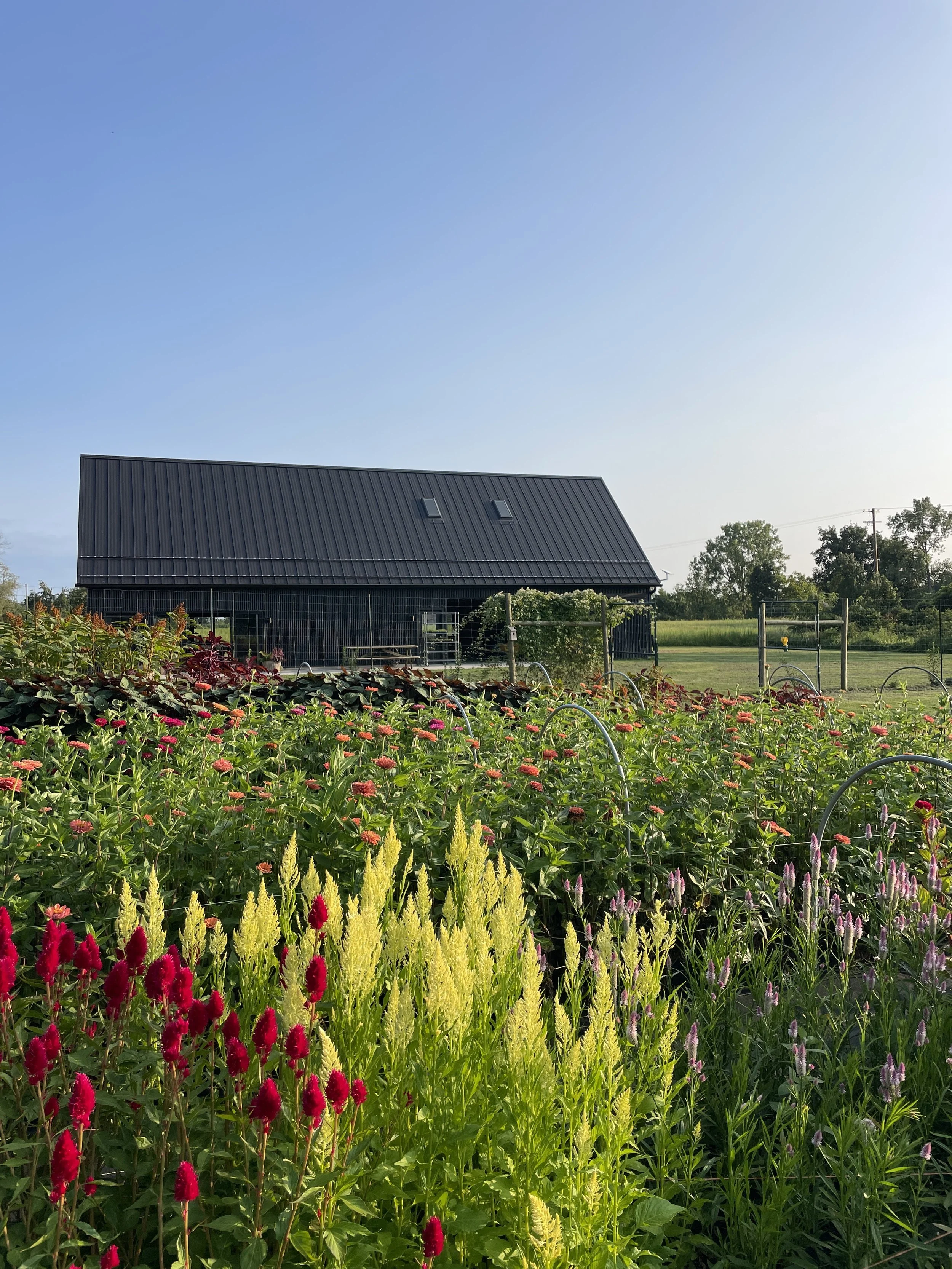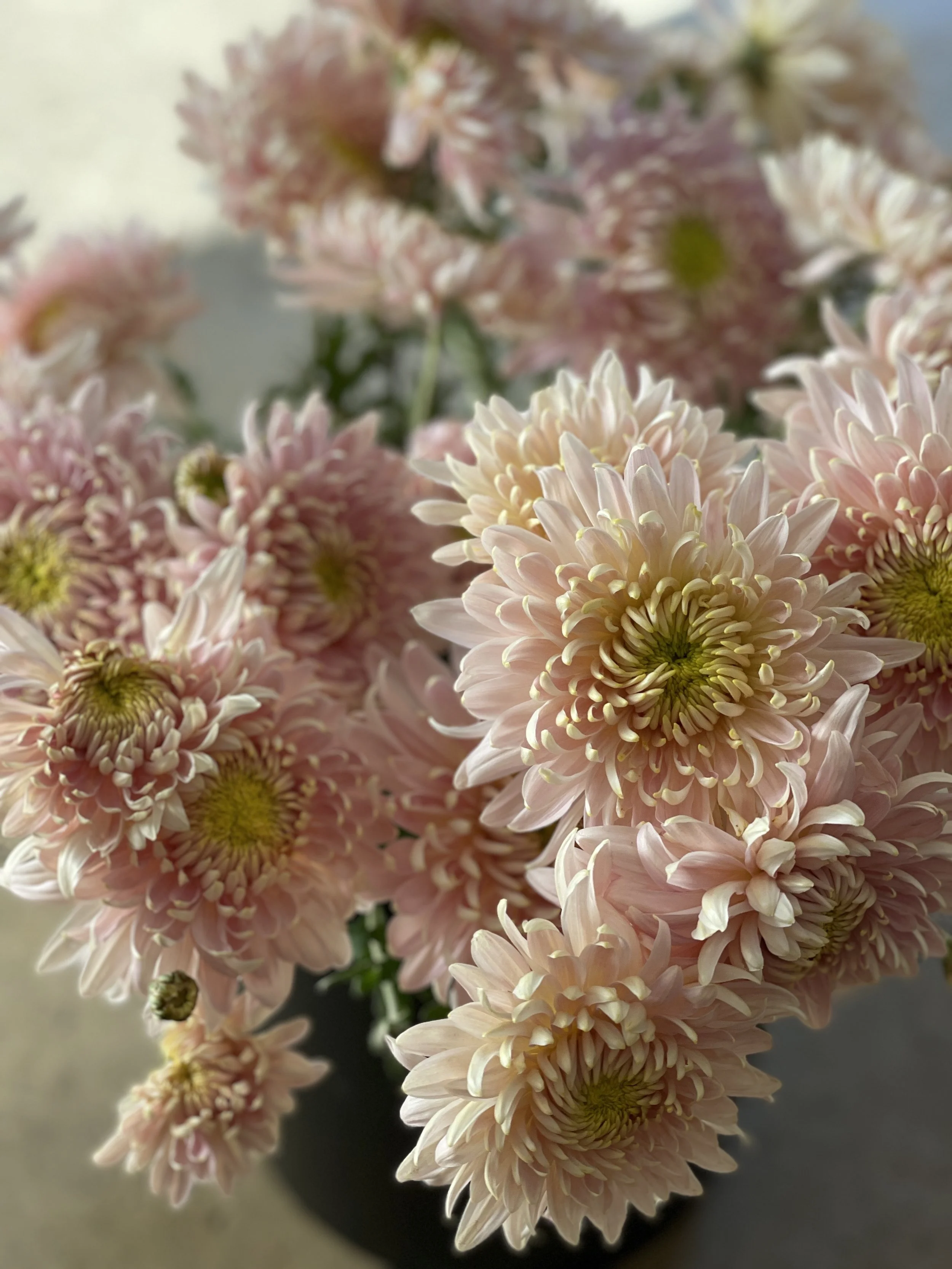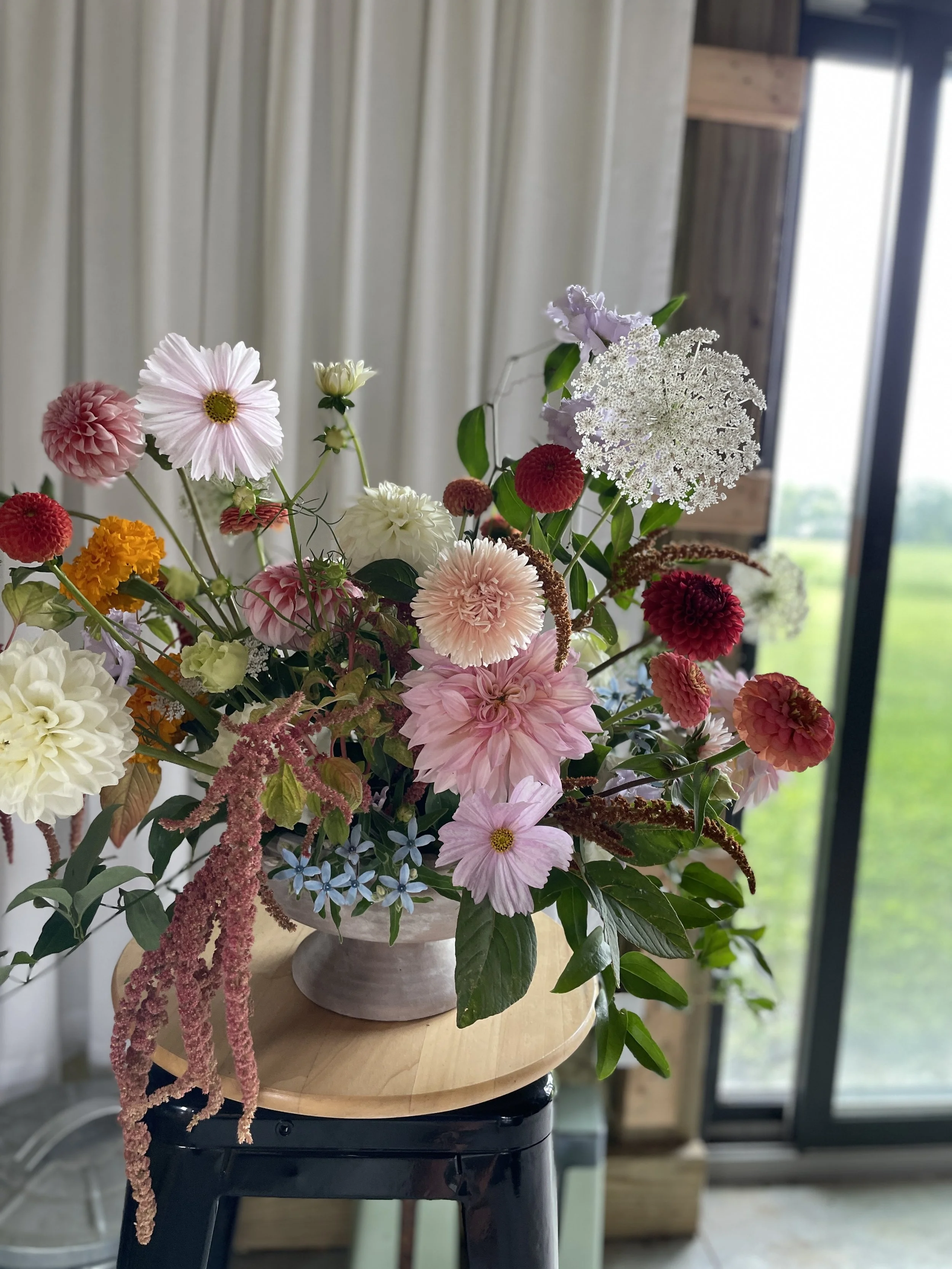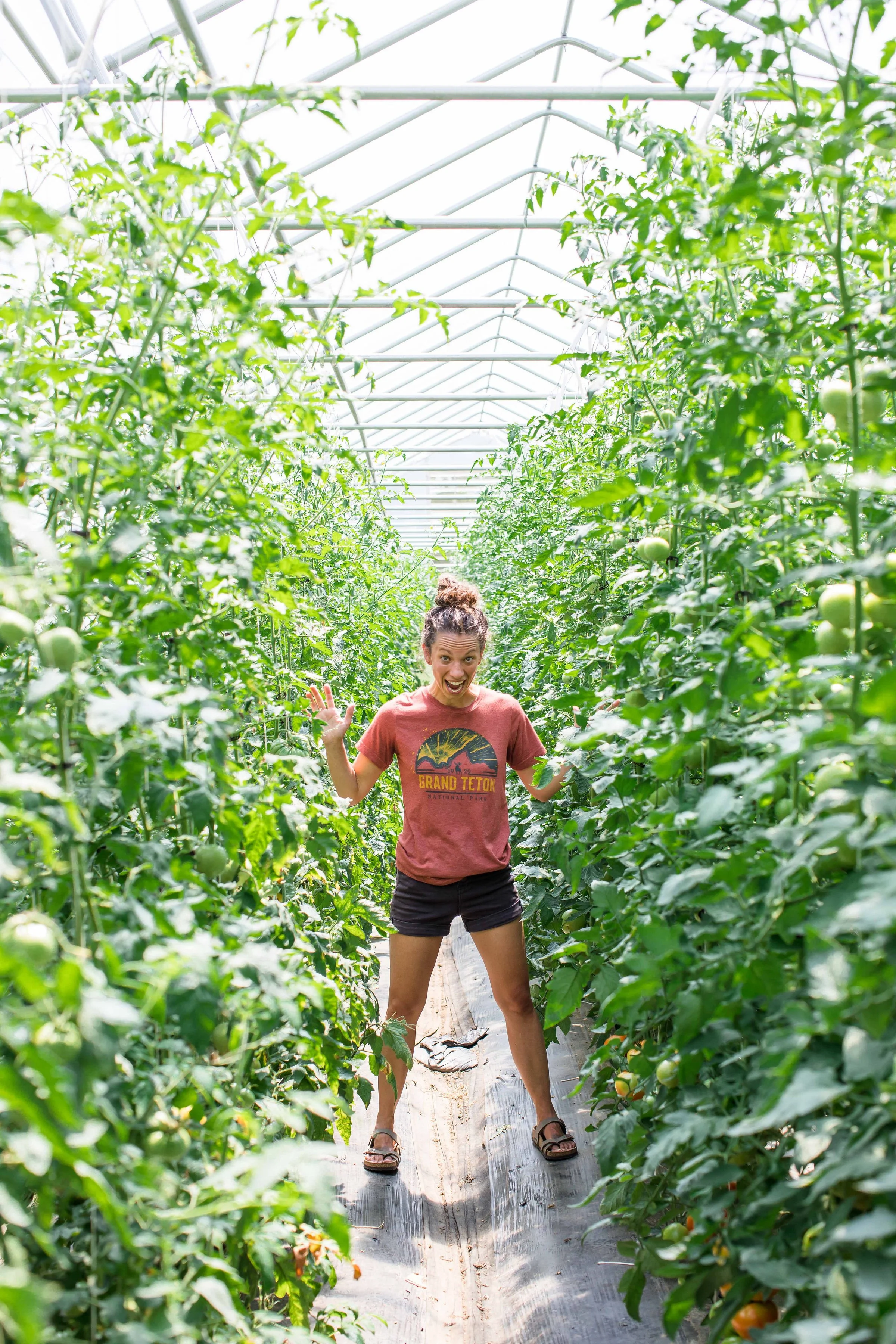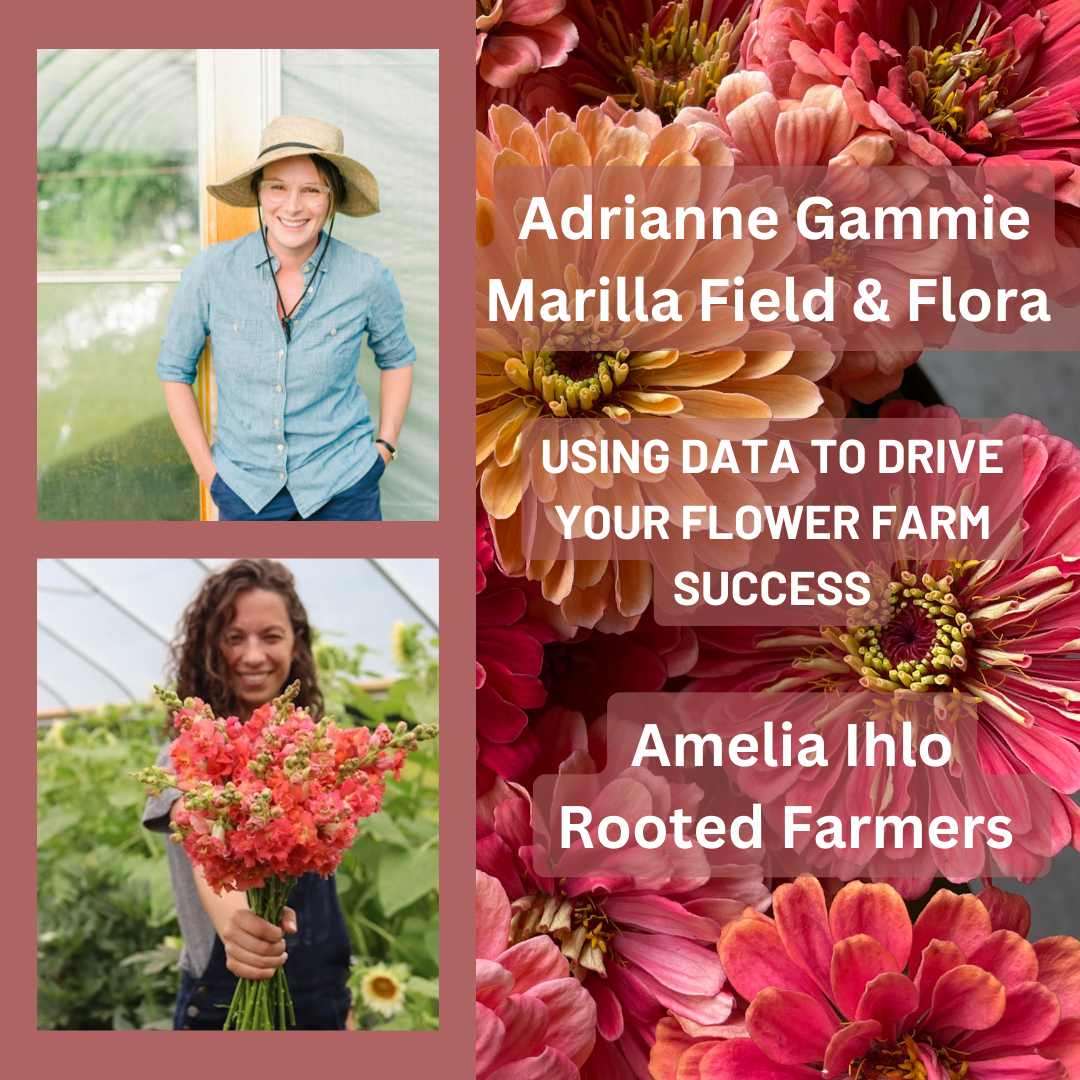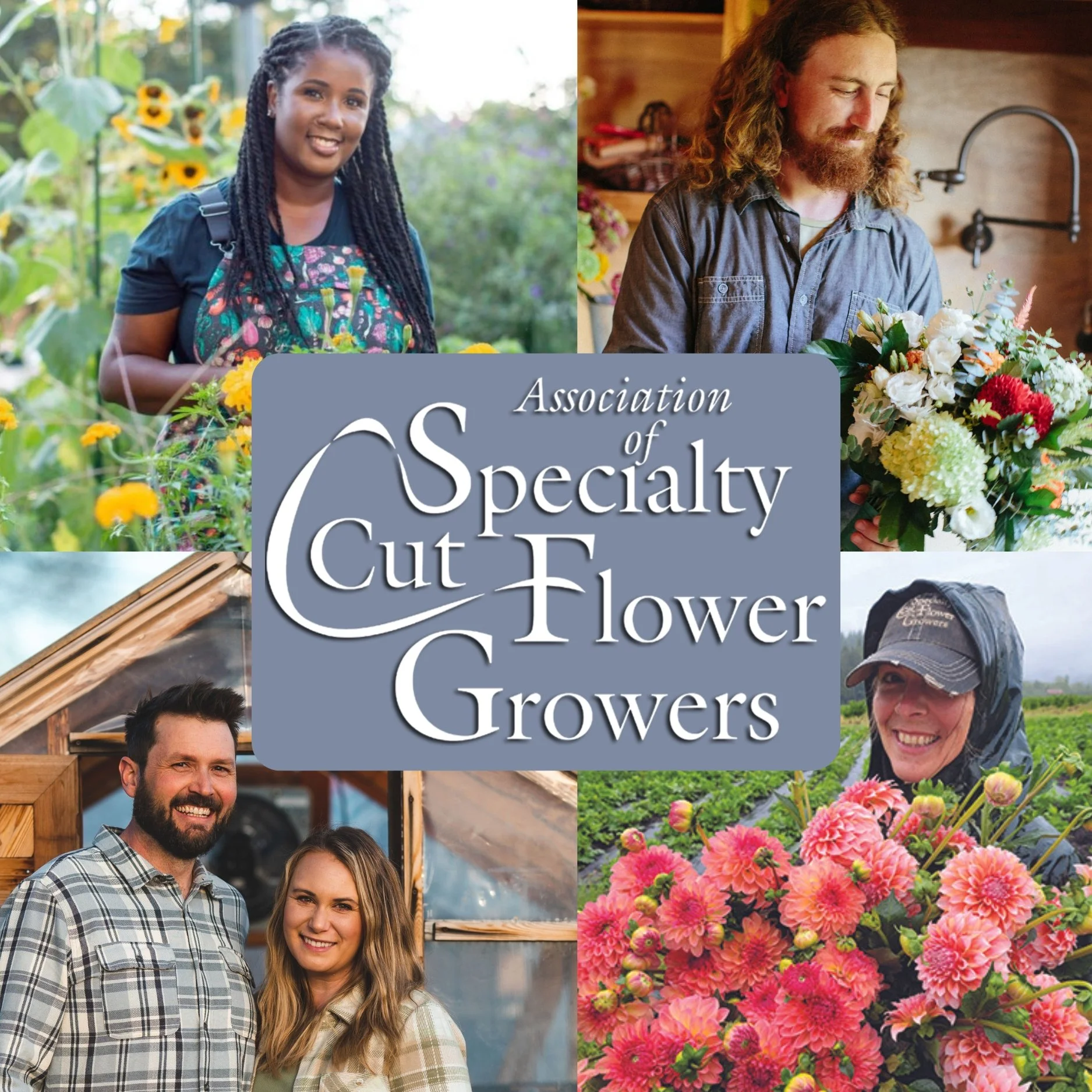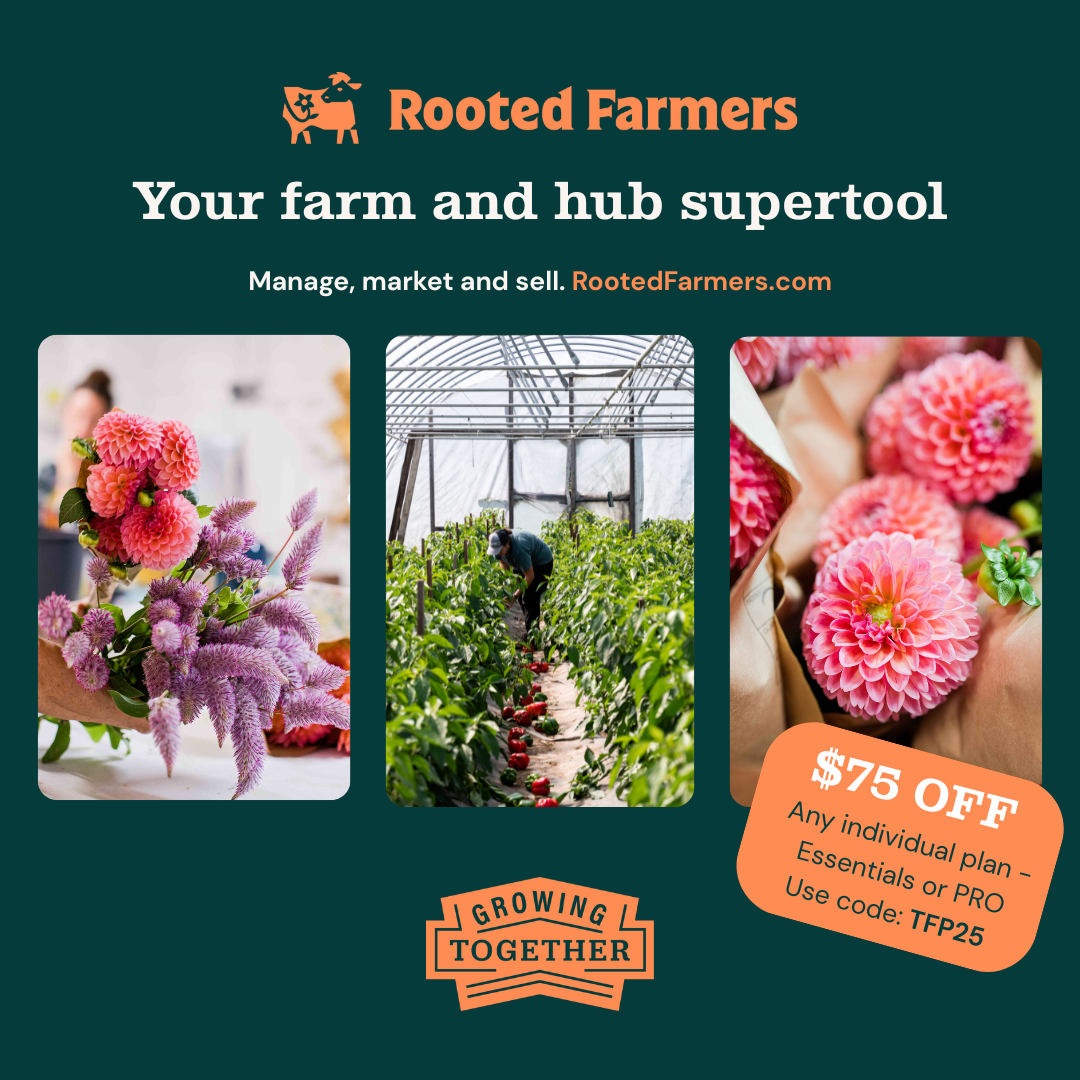Adrianne Gammie
Marilla Field & Flora
Adrianne Gammie runs Marilla Field & Flora, a flower farm and floral design studio in Dexter, Michigan. After a career in the fashion world, she started Marilla Field & Flora as a way to reconnect to her rural roots while fulfilling a desire to help revive the production of locally grown cut flowers. She discovered that the flowers she grew, with their ephemeral beauty, had a unique way of creating connections - both among people and with the natural world. Through responsibly grown flowers and seasonally inspired designs, her work tells a story. A story about who we are and where we come from. Beauty in the here and now, with all its perfect imperfections.
The farm spans 10 acres, and with more space dedicated to native pollinator fields than to production fields, it supports a rich ecosystem. The production fields are a colorful patchwork of blooms, featuring a diverse mix of flowers including peonies, dahlias, tulips, and hydrangeas, as well as more unusual beauties like basket flower and silene. The farm aspires to grow a wide range of flowers that captivate and inspire florists. In the design studio, creations inspired by the farm surroundings celebrate everything from life's milestones to everyday moments of joy. Proudly women-led and women-run, Marilla Field & Flora reflects the desire to nurture meaningful connections with everyone the farm touches
Show Notes
Diversify Your Income Streams
Things will go wrong—whether it’s weather, pests, or markets—so having multiple sources of income is essential for stability in flower farming.Investing in Pollinator Habitat
Adrianne has dedicated acres of her farm to pollinator habitat. These fields require different practices than standard flower production, but the ecological and community value is significant.Learning from Experts
She worked with native plant and prescribed burn specialists, and actively sought input from her local community to understand the specific needs of her region.Manage All Your Land
Even if you’re not actively farming every acre, it’s important to manage the whole property responsibly to support long-term soil and ecosystem health.Respect Florist Orders
Stick to what was ordered. Substitutions should be rare, and clear communication is key—be courteous, detailed, and professional in every exchange.Leverage Technology with Rooted Farmers
Adrianne credits Rooted Farmers for helping streamline her business. She uses the platform to manage sales and stay informed on market trends in her area.Know What Pays Its Rent
Regularly evaluate whether each crop is profitable—or if you’re growing it just because you like it. Passion is good, but profitability matters.Deliver in Person When Possible
Making deliveries yourself creates valuable face-to-face time with clients. These interactions build trust and give you firsthand insight into how your flowers are being used.Build Your Flower Farm
There’s no one-size-fits-all approach. Focus on what works for you, your land, your market, and your personal strengths.
Amelia Ihlo
Rooted Farmers
We're excited to welcome Amelia Ihlo as a collaborative guest on this episode! Amelia has been a trusted voice on The Flower Podcast many times, bringing her knowledge and passion for the floral industry to our listeners. Her expertise and insights always add depth to the conversation, and we're thrilled to have her join us again. To learn more about her background and past episodes, be sure to visit her dedicated guest page!
Show Notes
Rooted Farmers’ database offers a goldmine of info on top-selling flowers, color trends, and what’s moving in the market
Where you’re located, the type of business you run, and who your customers are all play a huge role in how trends apply to you. Not every trend makes sense for every business.
Some colors cycle in and out of popularity, but classics like white will always be in demand. Pantone Colors definitely have influence but sometimes only for that year.
Just because something is a bestseller doesn’t mean it’s easy to grow in your climate. Knowing what thrives in your area is just as important as knowing what sells.
Yield numbers and sales don’t always match up. Talking to buyers about what worked, what didn’t, and what they love can be more valuable than just looking at the data.
Trends are great, but they don’t always fit every business model. Be smart about when and how to incorporate them.
Amelia from Rooted Farmers shares how their analytics help growers plan, track trends, and build strong sales strategies while keeping conversations with buyers at the center.
And don’t forget—grow something just for you! Not everything has to be about sales.
